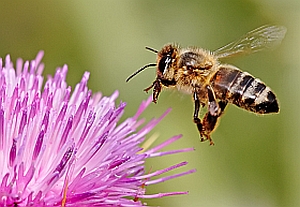
Good news for European honeybees - Syngenta and Bayer CropScience develop action plan to counter risk to bee health from neonicotinoid pesticides
Singapore: Agri giants Syngenta and Bayer CropScience have developed an action plan to help unlock the EU stalemate on bee health, following the failure of the European Commission to reach agreement with member states on an appropriate response to EFSA's report on the theoretical risk to bee health from neonicotinoid pesticides.
The key features of the action plan, include significantly scaling up of the creation of pollen rich, flowering field margins across the EU to provide essential habitat and nutrition for bees; supporting the establishment of a comprehensive field monitoring program for bee health including the detection of neonicotinoid crop protection products particularly in maize, oilseed rape, sunflower and cotton; and mandatory implementation of strict measures to mitigate the exposure risk to bees.
Investment and implementation of new technologies, which further reduce dust emissions from the planting of seed treated with neonicotinoid crop protection products, and investment in the R&D of new solutions for the main factors impacting bee health, which include parasites and viruses, and establishment of area-wide long-term pilot studies which demonstrate their effectiveness, are some of the other features included in the action plan.
Dr John Atkin, chief operating officer, Syngenta, said that, "This comprehensive plan will bring valuable insights into the area of bee health, whereas a ban on neonicotinoids would simply close the door to understanding the problem. Banning these products would not save a single hive and it is time that everyone focused on addressing the real causes of declining bee populations. The plan is based on our confidence in the safety of our products and on our historical commitment to improving the environment for bees."
Dr Rüdiger Scheitza, member of the board, and head, strategy and business management, Bayer CropScience, said that, "Even though all the evidence points to various parasites and diseases being the true cause of poor bee health, we are keen to do everything in our power to give consumers confidence in our products. The significant lack of agreement between the European Commission and the Member States needs a bold plan so that farmers in Europe can continue to produce the high quality affordable food, in a way that promotes the health of bees and other pollinators. We believe that such a plan as this can be delivered."




